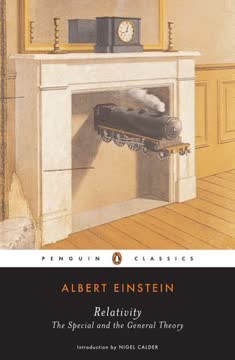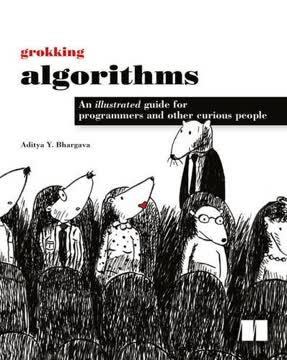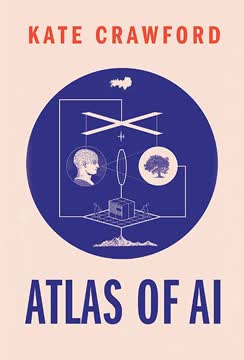Key Takeaways
1. Ada Lovelace: The Visionary Daughter of Lord Byron
"I wish to add my mite towards expounding & interpreting the Almighty, & his laws & works, for the most effective use of mankind; and certainly, I should feel it no small glory if I were enabled to be one of his most noted prophets (using this word in my own peculiar sense) in this world."
A unique upbringing. Ada Lovelace, born in 1815, was the only legitimate child of the famous poet Lord Byron and his wife Annabella Milbanke. Her mother, fearing the influence of Byron's volatile nature, raised Ada with a focus on mathematics and logic to counteract any potential "poetic" tendencies.
Early passion for science. Despite her mother's strict control, Ada developed a fascination with machines and invention from a young age. At 12, she conceptualized a steam-powered flying machine, demonstrating her early aptitude for mechanical thinking.
Mathematical prodigy. Under the tutelage of prominent mathematicians like Augustus De Morgan, Ada's mathematical skills flourished. Her ability to grasp complex concepts and think abstractly set her apart from her contemporaries.
2. The Analytical Engine: Babbage's Revolutionary Computer Concept
"The Analytical Engine weaves algebraical patterns just as the Jacquard-loom weaves flowers and leaves."
Babbage's vision. Charles Babbage, a mathematician and inventor, conceived the Analytical Engine in the 1830s as a general-purpose computing machine capable of performing a wide range of mathematical operations.
Key components:
- The "mill" (CPU in modern terms)
- The "store" (memory)
- Input/output mechanisms
- Program control using punched cards (inspired by the Jacquard loom)
Beyond calculation. While never fully built in Babbage's lifetime, the Analytical Engine's design laid the foundation for modern computers, introducing concepts like looping, conditional branching, and the separation of data and instructions.
3. Ada's Algorithm: The First Computer Program
"We may say most aptly, that the Analytical Engine weaves algebraical patterns just as the Jacquard-loom weaves flowers and leaves."
Bernoulli numbers. In her notes on the Analytical Engine, Ada Lovelace included a detailed algorithm for calculating Bernoulli numbers. This is widely considered the first published computer program in history.
Key features of Ada's algorithm:
- Step-by-step instructions
- Loops and conditional statements
- Variable handling
- Detailed explanations of the process
Visionary insight. Ada's notes went beyond mere translation, demonstrating a deep understanding of the machine's potential. She recognized that the Analytical Engine could manipulate symbols as well as numbers, foreseeing its application beyond pure calculation.
4. The Enchantress of Number: Ada's Unique Mathematical Insight
"The Analytical Engine has no pretensions whatever to originate anything. It can do whatever we know how to order it to perform."
Beyond calculation. Ada Lovelace's most significant contribution was her understanding that computers could be used for more than just numerical calculations. She envisioned machines capable of creating music, producing graphics, and even aiding scientific discovery.
Conceptual leaps:
- Recognizing the potential for symbolic manipulation
- Foreseeing the use of computers in creative endeavors
- Understanding the limitations of artificial intelligence
The science of operations. Ada developed the concept of a "science of operations," which laid the groundwork for modern computer science. She saw the potential for machines to process and manipulate any type of information that could be expressed symbolically.
5. Societal Constraints: Gender Barriers in 19th Century Science
"I believe I have the power of going just as far as I like in such pursuits, & where there is so very decided a taste, I should almost say a passion, as I have for them, I question if there is not always some portion of natural genius even."
Limited opportunities. Despite her exceptional abilities, Ada faced significant barriers as a woman in 19th-century scientific circles. Her gender often led to her work being overlooked or undervalued by contemporaries.
Challenges faced:
- Limited access to formal education
- Exclusion from scientific institutions
- Societal expectations of women's roles
Overcoming obstacles. Ada's collaboration with Charles Babbage and her publication of notes on the Analytical Engine (albeit under her initials) allowed her to contribute to the field despite these constraints.
6. The Power of Collaboration: Ada and Babbage's Intellectual Partnership
"Those who view mathematical science, not merely as a vast body of abstract and immutable truths, whose intrinsic beauty, symmetry and logical completeness, when regarded in their connection together as a whole, entitle them to a prominent place in the interest of all profound and logical minds, but as possessing a yet deeper interest for the human race."
Complementary skills. The partnership between Ada Lovelace and Charles Babbage combined his mechanical genius with her visionary understanding of the machine's potential applications.
Key aspects of their collaboration:
- Ada's translation and expansion of Menabrea's paper on the Analytical Engine
- Regular correspondence and intellectual exchange
- Ada's role in promoting and explaining Babbage's work
Missed opportunities. Despite their productive partnership, Babbage's reluctance to fully embrace Ada's offer of assistance in promoting and managing the Analytical Engine project may have contributed to its lack of realization in their lifetimes.
7. Legacy and Impact: Ada Lovelace's Enduring Influence on Computing
"A new, a vast, and a powerful language is developed for the future use of analysis, in which to wield its truths so that these may become of more speedy and accurate practical application for the purposes of mankind than the means hitherto in our possession have rendered possible."
Rediscovery. Ada Lovelace's contributions were largely forgotten after her death in 1852. It wasn't until the mid-20th century that her work was rediscovered and its significance fully appreciated.
Modern recognition:
- Ada Lovelace Day (celebrating women in STEM)
- Programming language named in her honor (Ada)
- Numerous books, films, and cultural references
Lasting impact. Ada's vision of computers as general-purpose machines capable of a wide range of applications has been fully realized in the modern digital age. Her insights into the potential of computing continue to inspire computer scientists and technologists today.
Last updated:
FAQ
What's "Ada's Algorithm" about?
- Biography of Ada Lovelace: "Ada's Algorithm" by James Essinger is a biography of Ada Lovelace, the daughter of Lord Byron, who is credited with being the first computer programmer.
- Historical Context: The book explores the 19th-century context in which Lovelace lived, highlighting her contributions to the early development of computing.
- Collaboration with Babbage: It details her collaboration with Charles Babbage on the Analytical Engine, a precursor to modern computers.
- Legacy and Impact: The book examines Lovelace's lasting impact on technology and her recognition as a pioneer in the digital age.
Why should I read "Ada's Algorithm"?
- Inspiration from Ada's Life: Ada Lovelace's story is one of overcoming societal norms to make significant contributions to science and technology.
- Understanding Computing History: The book provides insights into the early history of computing and the foundational work that led to modern technology.
- Rich Historical Detail: James Essinger offers a well-researched narrative that brings to life the Victorian era and its scientific advancements.
- Empowerment and Gender Roles: It highlights the challenges faced by women in science, making it a compelling read for those interested in gender studies.
What are the key takeaways of "Ada's Algorithm"?
- Pioneering Work: Ada Lovelace's work on the Analytical Engine laid the groundwork for future developments in computing.
- Visionary Thinking: Lovelace's ability to foresee the potential of computers beyond mere calculation was groundbreaking.
- Collaboration and Innovation: Her partnership with Charles Babbage exemplifies the importance of collaboration in scientific progress.
- Legacy of Women in STEM: The book underscores the often-overlooked contributions of women in science and technology.
How did Ada Lovelace contribute to computing?
- Analytical Engine Notes: Lovelace wrote extensive notes on Babbage's Analytical Engine, which included what is considered the first algorithm intended for a machine.
- Conceptual Leap: She envisioned the machine's potential to go beyond calculations, suggesting it could process symbols and create music.
- Programming Pioneer: Her work is recognized as the first instance of computer programming, earning her the title of the first computer programmer.
- Influence on Future Generations: Lovelace's insights laid the foundation for future developments in computer science.
What role did Charles Babbage play in Ada's life?
- Mentor and Collaborator: Babbage was a mentor to Lovelace, introducing her to the world of computing and mathematics.
- Analytical Engine Development: He designed the Analytical Engine, which Lovelace extensively studied and documented.
- Intellectual Partnership: Their collaboration was marked by mutual respect and intellectual exchange, crucial for the development of their ideas.
- Support and Recognition: Babbage recognized Lovelace's talents and referred to her as the "Enchantress of Number."
What challenges did Ada Lovelace face in her career?
- Societal Expectations: As a woman in the 19th century, Lovelace faced societal constraints that limited women's roles in science and mathematics.
- Health Issues: She struggled with health problems throughout her life, which affected her work and productivity.
- Recognition and Credit: Despite her contributions, Lovelace's work was not fully recognized during her lifetime, partly due to gender biases.
- Financial and Personal Struggles: Lovelace faced financial difficulties and personal challenges, including a complex relationship with her mother.
How does "Ada's Algorithm" portray Ada's relationship with her mother?
- Complex Dynamics: The book explores the complex and often strained relationship between Ada and her mother, Lady Byron.
- Educational Influence: Lady Byron was instrumental in Ada's education, emphasizing mathematics to counteract what she saw as Byron's dangerous imagination.
- Control and Independence: Ada's mother exerted significant control over her life, which Ada struggled against in her pursuit of intellectual freedom.
- Emotional Impact: The relationship had a profound emotional impact on Ada, influencing her personal and professional life.
What are the best quotes from "Ada's Algorithm" and what do they mean?
- "Enchantress of Number": This phrase, used by Babbage to describe Ada, highlights her unique ability to understand and envision the potential of the Analytical Engine.
- "A new, a vast, and a powerful language": Ada's description of the Analytical Engine's capabilities reflects her visionary understanding of computing as a transformative tool.
- "The science of operations": Ada's term for computing, emphasizing its distinct nature from mathematics and its potential to revolutionize various fields.
- "The Analytical Engine weaves algebraical patterns": This metaphor illustrates Ada's insight into the machine's ability to process complex calculations, akin to weaving intricate designs.
How did Ada Lovelace's work influence modern computing?
- Foundation for Algorithms: Her notes on the Analytical Engine are considered the first algorithm intended for implementation on a machine.
- Vision of Computing's Potential: Lovelace foresaw the broader applications of computing, influencing future generations of computer scientists.
- Recognition as a Pioneer: Her work laid the groundwork for the development of programming languages and computer science as a discipline.
- Inspiration for Women in STEM: Lovelace's legacy continues to inspire women pursuing careers in science, technology, engineering, and mathematics.
What is the significance of the Jacquard Loom in "Ada's Algorithm"?
- Inspiration for the Analytical Engine: The Jacquard Loom's use of punched cards to control weaving patterns inspired Babbage's design for the Analytical Engine.
- Metaphor for Computing: Ada used the loom as a metaphor to explain how the Analytical Engine could process information and create complex outputs.
- Historical Context: The loom represents the intersection of industrial technology and computing, highlighting the innovative spirit of the era.
- Symbol of Innovation: The Jacquard Loom exemplifies how existing technologies can inspire new inventions, a theme central to Ada's work.
How does James Essinger's writing style contribute to the narrative?
- Engaging Prose: Essinger's writing is both informative and engaging, making complex scientific concepts accessible to a general audience.
- Historical Detail: The book is rich in historical context, providing a vivid picture of the Victorian era and its scientific advancements.
- Character Development: Essinger delves into the personalities and relationships of key figures, bringing Ada and her contemporaries to life.
- Balanced Perspective: The author presents a balanced view of Ada's achievements and challenges, offering a nuanced portrayal of her life and legacy.
What lessons can be learned from "Ada's Algorithm"?
- Perseverance in Adversity: Ada's determination to pursue her intellectual passions despite societal and personal challenges is a testament to perseverance.
- Importance of Collaboration: Her partnership with Babbage underscores the value of collaboration in scientific and technological innovation.
- Visionary Thinking: Ada's ability to envision the future of computing highlights the importance of thinking beyond current limitations.
- Legacy of Women in Science: The book serves as a reminder of the contributions of women in science and the need to recognize and support their achievements.
Review Summary
Ada's Algorithm receives mixed reviews. Some praise its exploration of Ada Lovelace's life and contributions to computing, while others criticize the writing style and excessive focus on peripheral figures. Readers appreciate learning about Ada's visionary ideas but feel the book lacks depth in exploring her work. Many note an overemphasis on Charles Babbage and Ada's parents. The biography is seen as accessible but potentially biased, with some questioning the extent of Ada's impact on the digital age.
Similar Books







Download PDF
Download EPUB
.epub digital book format is ideal for reading ebooks on phones, tablets, and e-readers.




